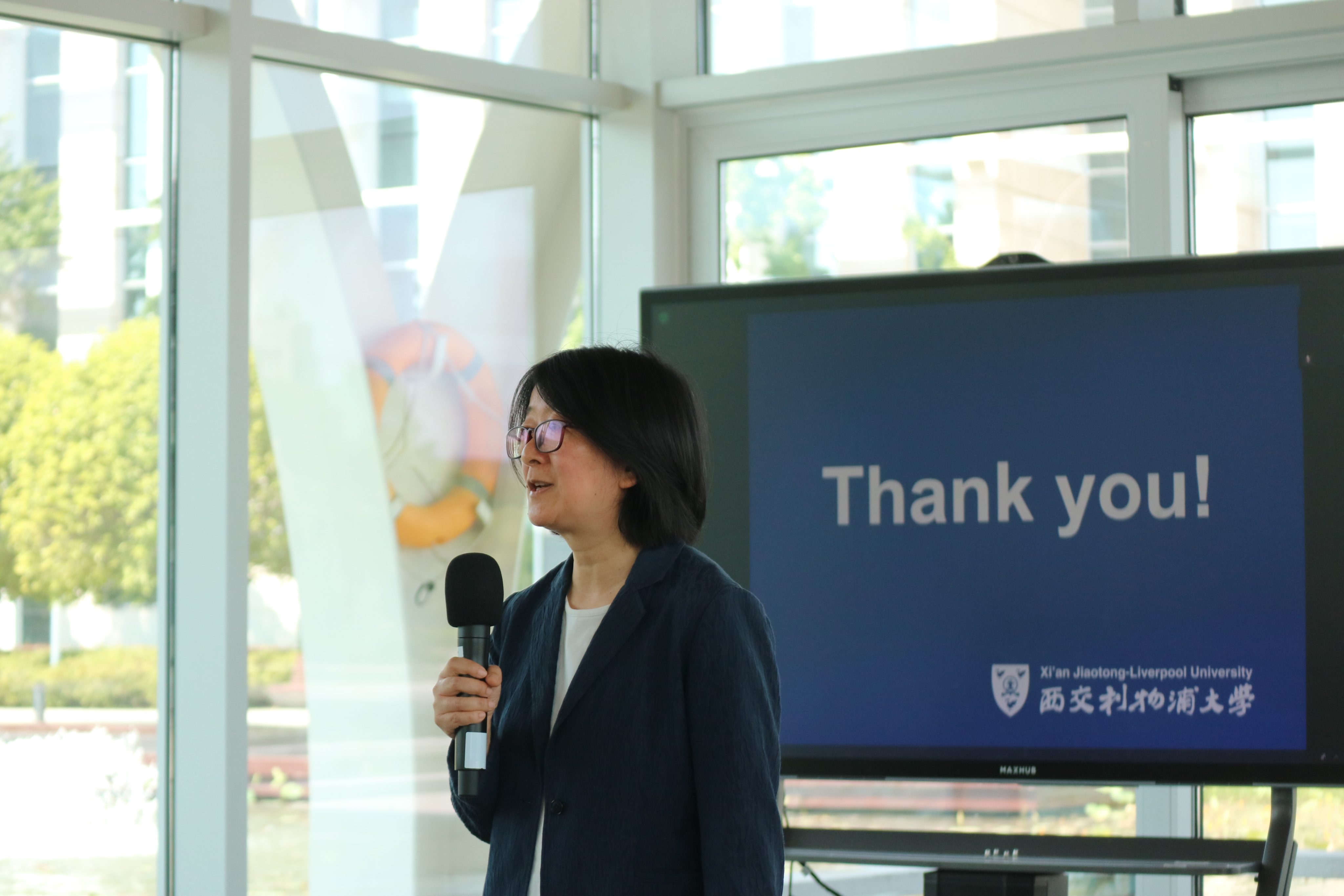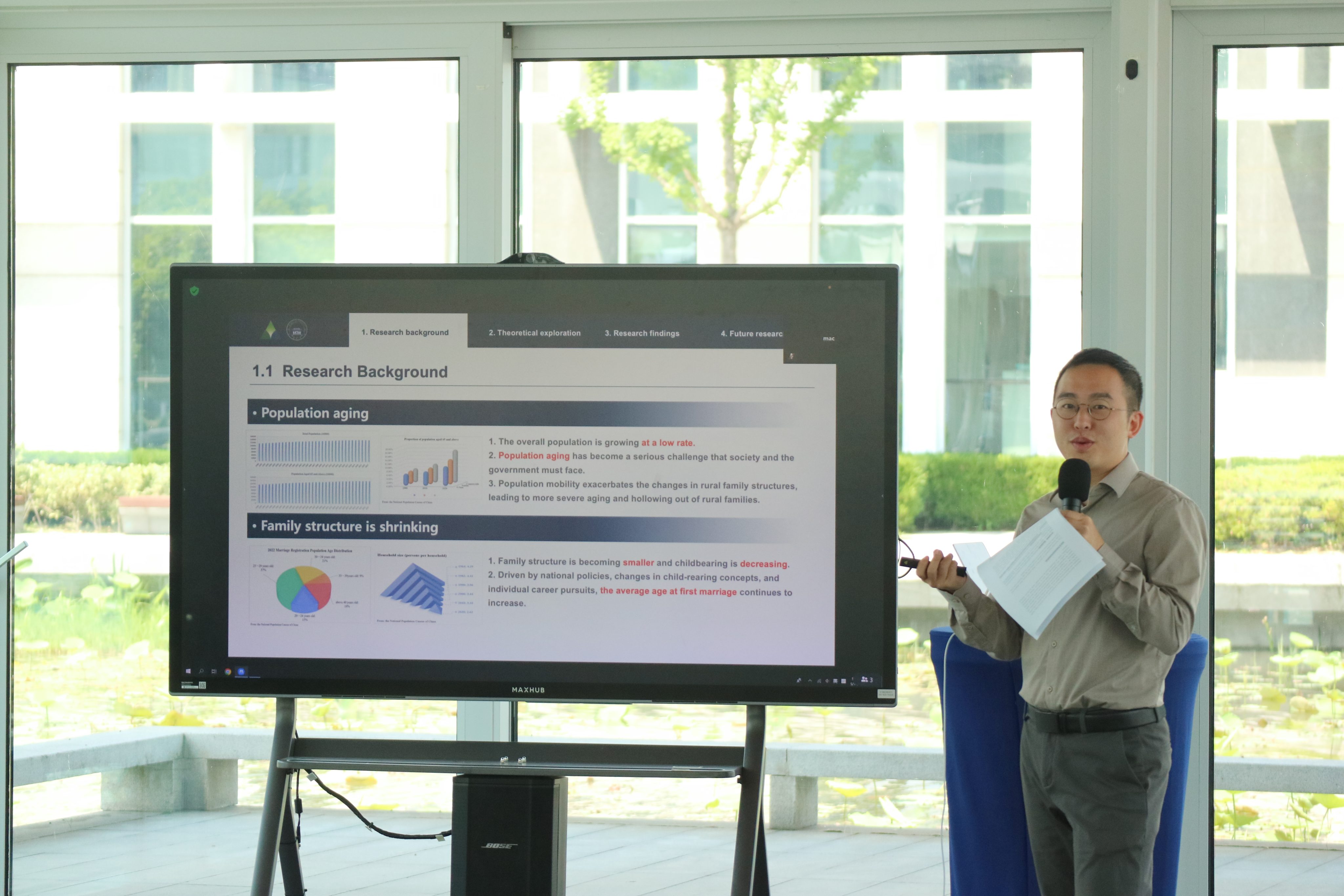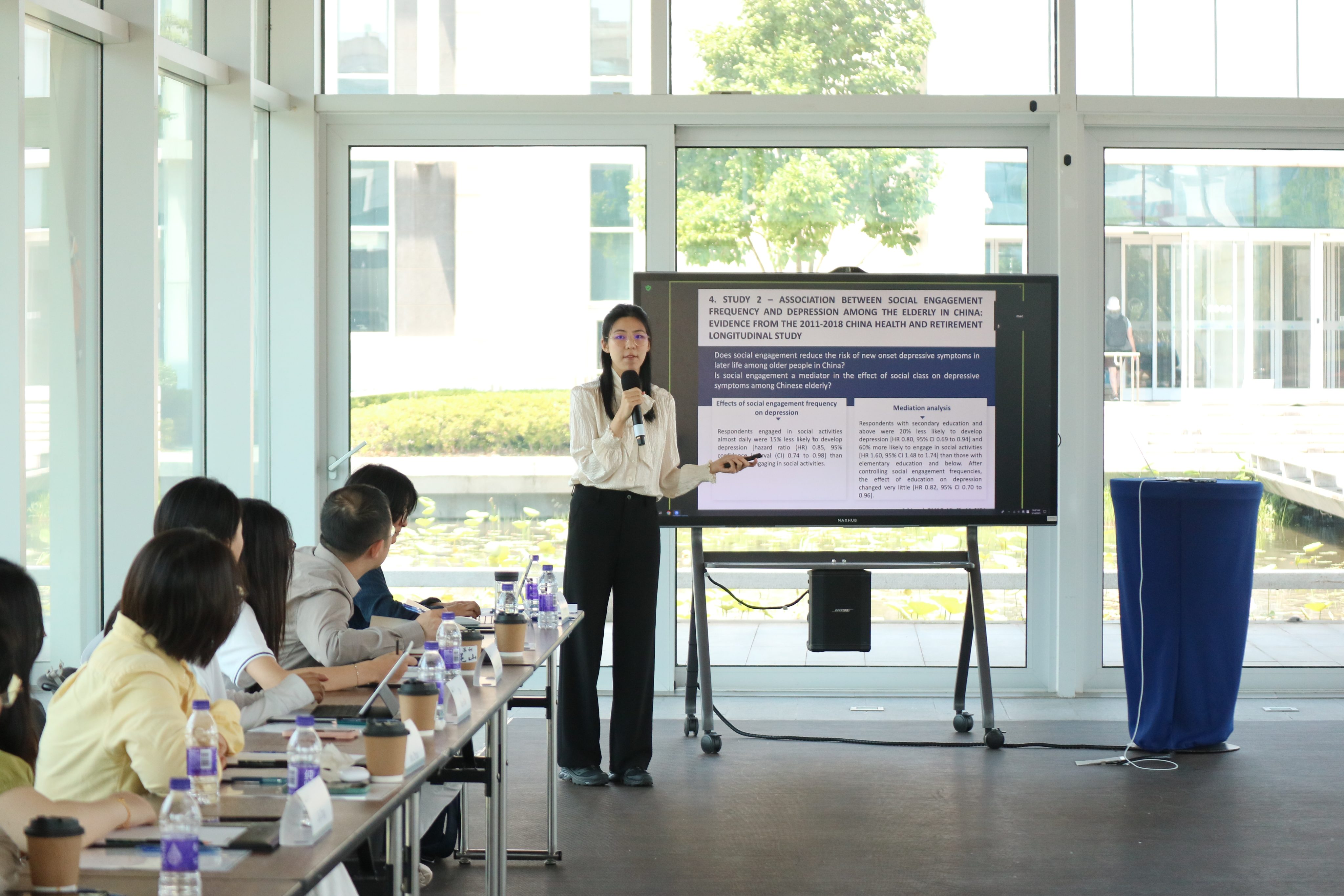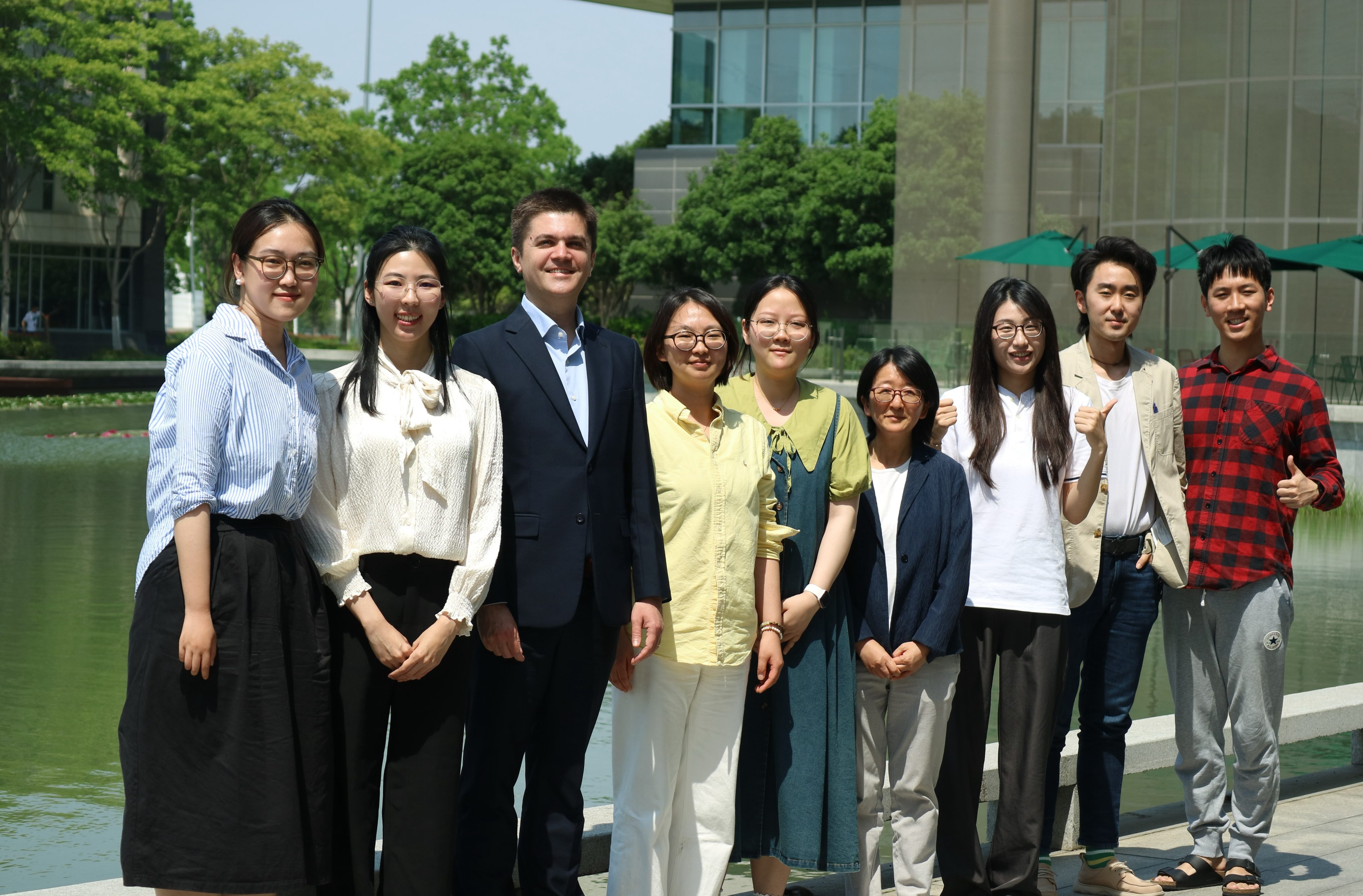KUNSHAN, May 14 – Duke Kunshan University’s Lakeside Pavilion hosted a multidisciplinary symposium, “Advancing Primary Healthcare for Vulnerable Populations in China,” marking the culmination of a collaborative research initiative between Duke Kunshan University (DKU) and Wuhan University (WU).
The gathering brought together public health scholars, clinicians, and policy experts – including Dr. Song Yu, Director of Think-Tank at Xi’an Jiaotong-Liverpool University, Dr. Li Haomiao, Specially Appointed Associate Researcher at Department of Public Administration, Wuhan University, and Dr. Li Jining from the University of Liverpool – to address systemic challenges in China’s primary healthcare system.
Assistant Professor Marius Wamsiedel from DKU Global Health Research Center warmly welcomed all participants. As the principal investigator, he also introduced the two-year joint research project’s key findings.

With Kunshan government’s support, the DKU-WU collaborative initiative – Access to Primary Healthcare for Vulnerable Groups in China – investigated healthcare accessibility for three vulnerable groups: rural residents, urban migrant workers, and the elderly. Through in-depth community interviews across urban and rural settings, researchers uncovered critical gaps between healthcare infrastructure and the evolving needs of these populations.
The symposium also hosted multidisciplinary keynote speech and roundtable session to extend the discussion on strategies to enhance accessibility and equity in primary healthcare services for the marginalized population.
The morning sessions featured cross-disciplinary presentations on dementia care, family structure transitions, mental health among older adults, cultural beliefs related to health, and healthcare utilization patterns. The afternoon roundtable discussion extended the morning’s themes, focusing on the forward-looking solutions, including building effective multidisciplinary care teams at the PHC, addressing heterogeneous patient needs, and translating field research into actionable policies.



Participants agreed China’s primary healthcare system requires urgent strengthening amid three converging trends: rapid aging, dissolving multigenerational households, and shifting disease patterns. Critical priorities include stabilizing medication supply chains, improving referral systems between community clinics and hospitals, and rebuilding public trust in grassroots facilities.


